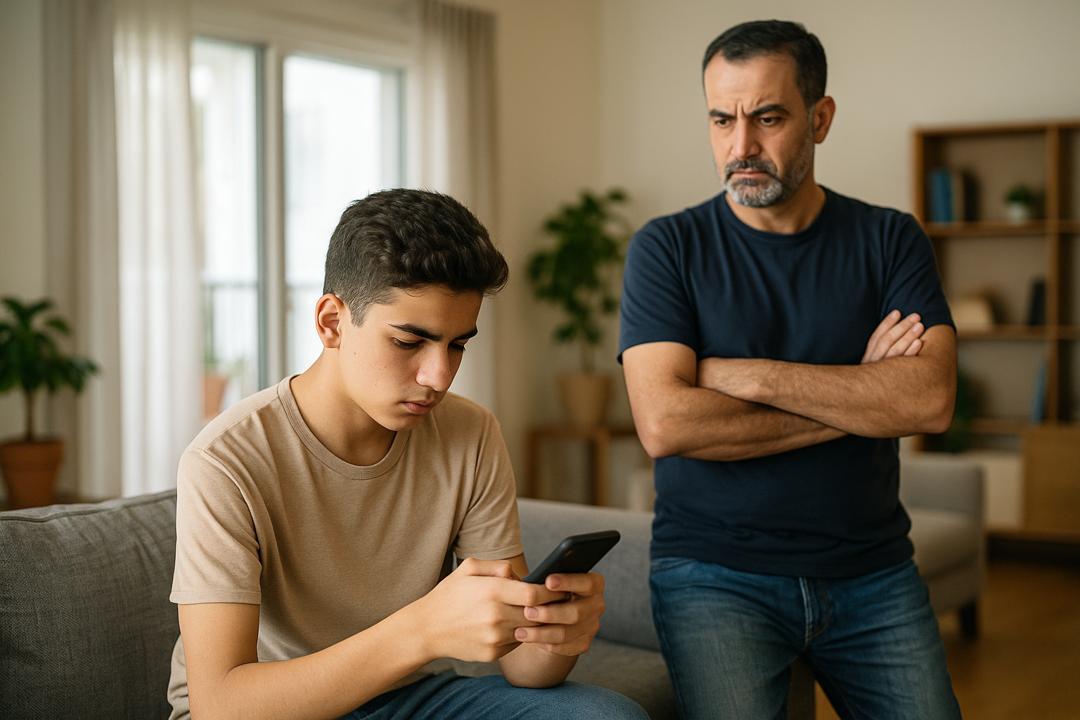If you’ve ever tried to pry a smartphone from a teenager’s clenched fist, you’ll know that “screen time” has evolved from a simple parenting chore into an Olympic sport. Our kids aren’t just spending hours on phones and video games; research suggests they’re becoming hooked in ways that mirror real addiction. A recent study that tracked more than 4,300 adolescents over four years looked beyond hours spent online and measured “addictive use” – things like whether screens interfere with schoolwork or cause panic when they’re taken away. About a third of these kids reported increasingly compulsive social‑media or mobile‑phone use. Those on that trajectory were roughly twice as likely to show suicidal behaviour by the end of the study. When researchers drilled down further, they found that around half of the preteens were heavy mobile‑phone users from the start, and 41 % had high or rising compulsive social‑media habits. For video games, more than 40 % fell into the “high addictive use” category. What’s startling is that total hours didn’t predict mental‑health problems—it was the compulsive behaviour, the withdrawal feelings, the way screens gobbled up kids’ lives.
As a fellow parent, I get it: some days the only way to get through dinner prep is to surrender the tablet. But these findings remind us that it’s not just about counting minutes. When our teens start sleeping with their phones under their pillows or skipping soccer to grind a video game level, that’s when red flags go up. Dr. Yunyu Xiao, lead author of the study, points out that simply banning devices isn’t a magic fix; partial access can make the craving stronger. And Cambridge researcher Amy Orben notes that why and how young people use technology matters more than how long. Constant doom‑scrolling because you’re lonely or being dragged back by algorithms designed to keep you hooked is different from watching a movie with friends.
Closer to home, Egypt’s Ministry of Health recently convened its Scientific Committee for Mental Health of Children and Adolescents to review the state of youth mental health and plot a response. The meeting ended with a commitment to set up specialised working groups made up of university professors and ministry experts to provide scientific solutions for our teens’ mental‑health. Hossam Abdel Ghaffar, the ministry spokesperson, didn’t mince words: addiction to social media and online games is among the most pressing concerns facing young people. The committee’s new initiative targets early detection and prevention by taking the fight into schools, health centres and even recreational club. They’ve launched an electronic mental‑health platform and hotline (16328) where families can get help. Secretary‑General Menan Abdel‑Maksoud calls addiction a national security issue and says the campaign aims to offer integrated medical and social service. A big emphasis is on raising awareness among adolescents about the psychological and physical damage of excessive internet use and reducing the stigma around seeking help.
So what are we supposed to do besides panic? First, watch for the signs of addictive use: is your teen hiding devices, getting irritable when cut off, or neglecting obligations? Start conversations early, not lectures. Share stories like the Egyptian initiative to show that this isn’t just a “my house” problem but a public‑health concern. Encourage hobbies that don’t involve screens, and model balanced use yourself. If you suspect a problem, don’t hesitate to tap into resources like hotlines or mental‑health providers. The study’s authors suggest that interventions used in other addictions—structured routines, counselling, community support—may also help here.
As parents, we often joke about selling our kids’ devices on Amazon to teach them a lesson. But the data should make us rethink our approach. It’s not about draconian rules but about helping our teens build healthier relationships with technology. Let’s steer them toward using screens for learning and connection rather than mindless scrolling. And maybe, just maybe, we’ll all reclaim a bit of family time before that next push notification dings.
Sources
– Hannah Devlin, The Guardian – “Teenagers who report addictive use of screens at greater risk of suicidal behaviour, study shows” (18 June 2025)
– Top 50 Women Forum – “Egypt Tackles Youth Mental Health With New Initiatives” (5 January 2025)







Leave a Reply
You must be logged in to post a comment.